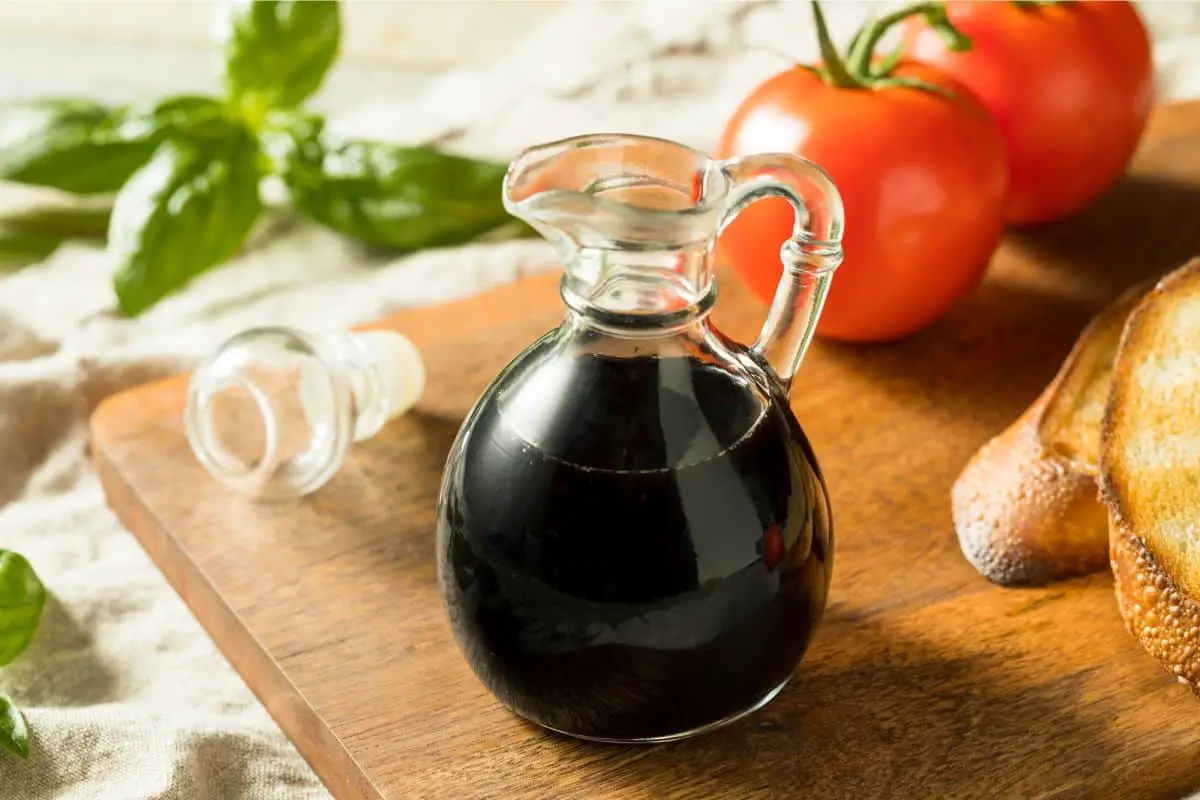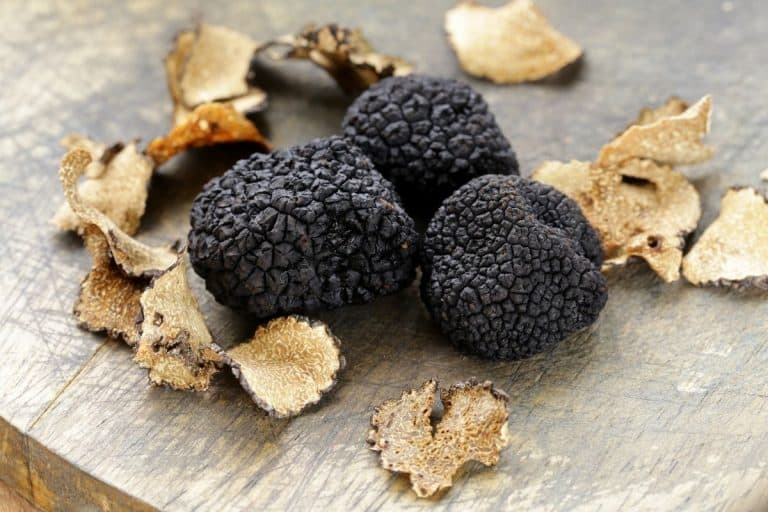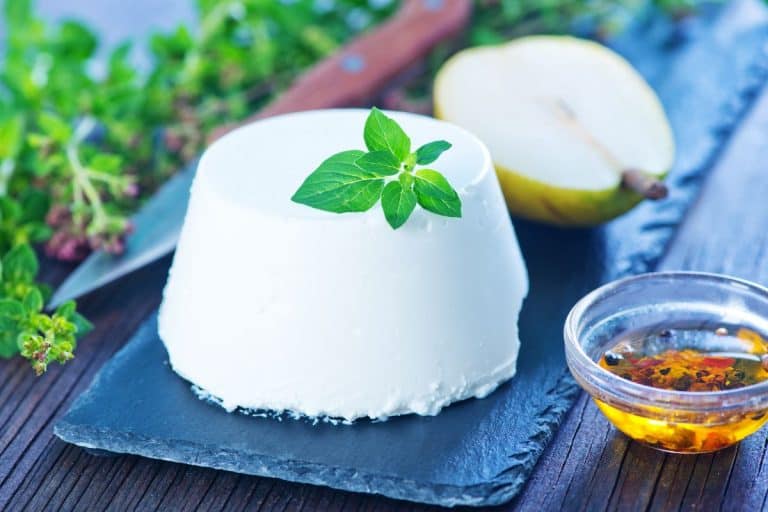Does Balsamic Vinegar Go Bad? (Yes, Yes It Does!)
Balsamic vinegar not only adds a complex, sweet-and-sour twist to almost any salad, but it’s also a must in Italian cuisine that can take up to — hear this — 12 years to make. That’s why many expert and amateur cooks alike worry about how long this dark brown liquid will last in their kitchens, searching for the answer to a fairly frequent question: does balsamic vinegar go bad?
Some people claim that this type of vinegar is so magical that it has the gift of eternal youth, but spoiler alert: yes, it does go bad. However, its lifespan depends on many factors such as its origin and how it is stored, so if you have a three-year-old balsamic vinegar in your pantry right now, don’t panic — this situation is not as bad as it seems. Instead, read on, because in this post we will answer all your questions about the shelf life of balsamic vinegar!
Why Does Balsamic Vinegar Go Bad?
Every time we used to tidy up our pantry and fridge we always had to toss out some products because they had already gone bad, but once we began to understand the reason behind it, we learned how to take better care of them. So, when it comes to balsamic vinegar, why does it go bad?
The number one reason why this happens is improper storage, e.g., exposure to direct sunlight or high temperatures, use of clear bottles, or worse, poorly closing the bottle once it is used. Yes, — commercial — vinegar loses its qualities and becomes less and less useful over time, but it actually gets worse once it is neglected. Weird odors, off-flavors, discoloration, and even mold may appear.
Does Balsamic Vinegar Go Bad If Not Refrigerated?
Unlike lime juice, balsamic vinegar does not need to be refrigerated. While it can be refrigerated, it is not the best way to store it. The cold temperature can cause condensation inside the bottle, and alter the quality of the product.
Is It True That Balsamic Vinegar Does Not Go Bad with Age?
We already know that balsamic vinegar can go bad, but why do some people claim that balsamic vinegar is immune to any contaminant? Well, this is due to the fact that vinegar itself is a hostile environment for bacteria given its highly acidic nature. It is a self-preserving product, but it is not exempt from going bad if stored poorly, or if contaminants manage to slip into the bottle.

How Long Does Balsamic Vinegar Last After Opening – Understanding Its Shelf Life
The short answer to how long can balsamic vinegar last is as long as it tastes, looks, and smells good, but if you really want to understand its shelf life, we first need to understand the two main types of balsamic vinegar — traditional and commercial. Why? Because each has a different shelf life.
Traditional Balsamic Vinegar
Traditional balsamic vinegar is made from selected grapes that are crushed — thus creating grape juice a.k.a grape must — fermented, acidified, and aged in wooden barrels for 12, 18, or even 25 years. The best thing about this type of balsamic vinegar? It virtually does not go bad with age, rather, — like wine — it gets better with age! You can store it and use it for as long as possible thanks to its purity and the long aging process.
Commercial-grade Balsamic Vinegar
Commercial — or “modern” — balsamic vinegar is the one that almost all of us have in our kitchens, and to be honest, it does not age well. Its production process only takes a couple of months or a couple of years as manufacturers add additional ingredients to shorten the process and mimic the taste of the “real” traditional balsamic vinegar. Those extra ingredients are the reason why it cannot keep its quality for a long time after its expiration date, but only for another 2-3 years.
How to Tell If Balsamic Vinegar Is Bad
If you want to quickly learn how to tell if your balsamic vinegar is bad, keep these 4 key factors in mind:
- Best-by date: Start with the no-brainer, the best-by date. It will tell you exactly for how long your balsamic vinegar will be at its peak quality, and while you can still use it for some time after the date if you store it correctly, it’s better to be safe than sorry.
- Condition of the bottle: Before using your balsamic vinegar, take a look at the bottle. Make sure it is not in bad condition, that it is properly sealed, and that it is free of mold. The high acidity of vinegar makes it rare for mold to grow on it, but if the bottle is not properly closed, moisture from outside can enter and allow mold growth — especially around the opening of the bottle, near the seal.
- Changes in the liquid’s appearance: Balsamic vinegar is mostly composed of acetic acid, which decomposes over time and causes discoloration if you leave the bottle on the shelf for many years. The vinegar can go from a glossy, deep brown color to a cloudy shade, but you should only be concerned if the color becomes noticeably pale or completely different. Other harmless things that can appear in the liquid are small particles — or sediments —, especially if the balsamic vinegar is unfiltered, and a big slimy blob called “vinegar mother”.
- Different taste: Acetic acid is not only responsible for the appearance of balsamic vinegar but also its sour taste and pungent smell when fresh. Over time, the rich flavor of balsamic vinegar can change to an overly strong one, so always taste it with a teaspoon before adding it to your food. If you get a funny taste, it’s best to get rid of it.
Why Is There Dark Slime in Old Balsamic Vinegar?
There’s a slimy, gelatinous blob floating in your old balsamic vinegar? Congrats! You’re dealing with what’s called “vinegar mother” or “mother of vinegar”, which is — long story short — a party of bacteria having a good time on top of your vinegar, transforming traces of alcohol or sugar into acetic acid. It is completely safe to consume, but if it totally grosses you out, just strain it through a coffee filter.
Can You Use Expired Balsamic Vinegar?
Commercial balsamic vinegar does not go bad right after its expiration date, so if it has been stored under the right conditions, you may be able to use it for a couple more years past that. Nevertheless, the major issue with this product is that its qualities tend to fade over time, so while you can use it past its best-by date, chances are it won’t taste, smell or look the same as it did the year you bought it. The same thing happens to expired ramen!
Fun-fact: Did you know that the name “vinegar” comes from French? Oui! Specifically, from the words “vin aigre”, which literally means “sour wine”.
Can Old Balsamic Vinegar Make You Sick?
Old balsamic vinegar can only make you sick if it has mold, strange color, or an odd smell and taste, i.e. if it has gone bad. If it is a couple of years past its best-by date and no harmful contaminants found their way into the bottle, it should not pose a health risk.

What Is the Best Way to Store Balsamic Vinegar So It Lasts Longer?
If you want to know how to store balsamic vinegar once opened, there are several things you can do to get the most out of your bottle and make it last a long time.
First, keep it away from light. Balsamic vinegar — as well as apple cider vinegar, wine vinegar and others — loves dark places as direct light can break down its chemical composition, so store it in your pantry inside a non-transparent bottle.
Next, be sure to avoid warm and humid places. Besides light, heat is vinegar’s second-worst enemy, so if you keep your vinegar in the cabinet above the stove or any other heat sources, remove it immediately. Place it in a cool, dry place, because moisture can also attract mold.
Last but not least, remember that balsamic vinegar does go bad after opening if you don’t close it properly once you finish drizzling it on top of your salad, so just pop that cap right back on and seal it tight!
Is It Okay to Freeze Balsamic Vinegar?
You can freeze vinegar if you want to, but we suggest that you avoid doing so as it will do little good. That does not mean that your balsamic vinegar will go bad if you put it in the fridge, rather the flavor and exquisite qualities of this liquid will be better preserved if you keep it at room temperature.
You see, freezing vinegar and thawing it will most likely add excess moisture to the product in the form of water, which will dilute the acetic acid. As mentioned above, acetic acid is the compound that is most present in balsamic vinegar, and if it gets diluted, the salad dressing will lose color, flavor, acidity, and potency.
Does Balsamic Vinegar Go Bad – Final Thoughts
The million-dollar question has been answered: balsamic vinegar can go bad due to improper storage. But fortunately, there are many things you can do to prevent that moment from arriving sooner than it should. Just make sure to keep it in a dark, cool, dry place in a non-transparent bottle and, of course, to keep an eye on the best-by date. This way, you can continue to use it to elevate your dishes for years to come! 🙂








